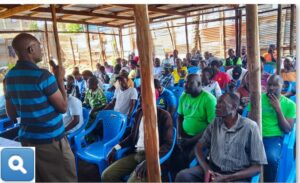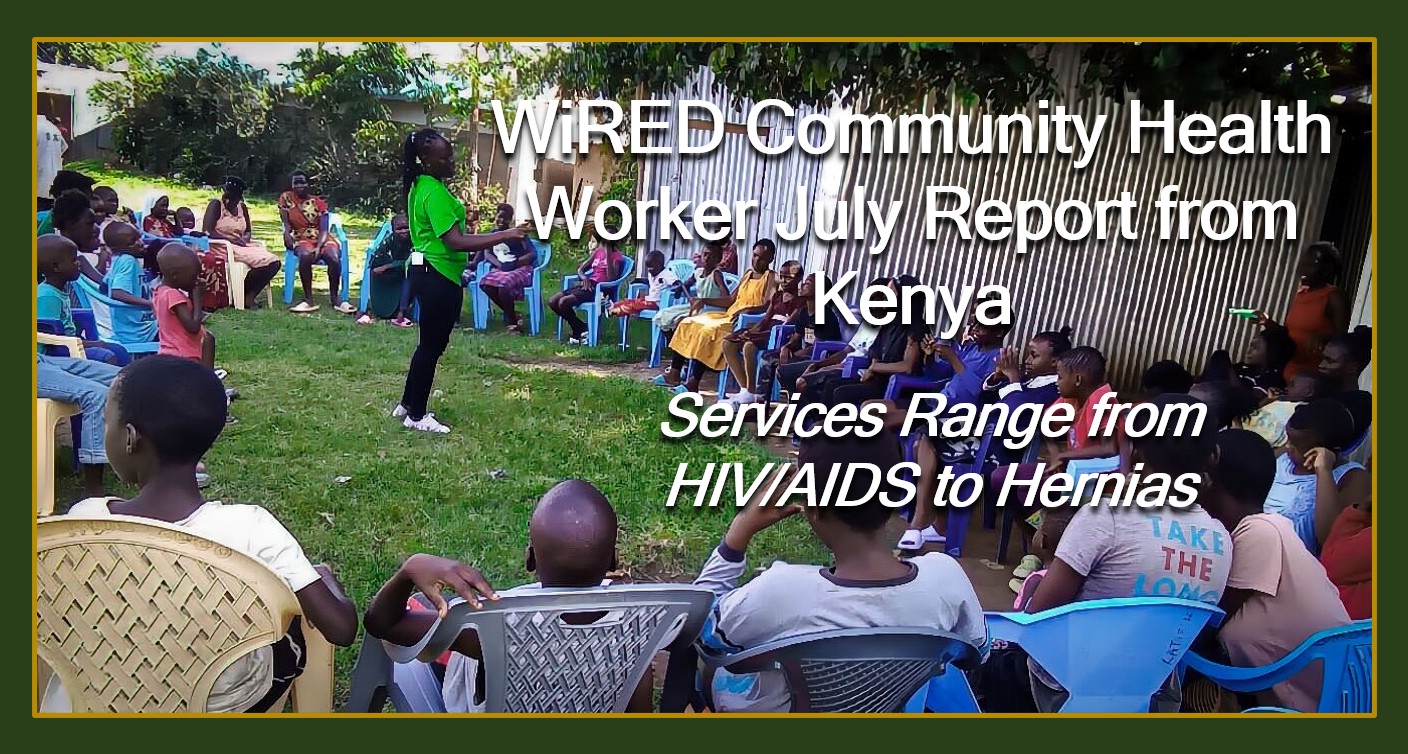By Allison Kozicharow; Edited by Elizabeth Fine
This July WiRED International’s community health worker (CHW) team of 20 people performed health services for almost more than 9,000 people in Kisumu, Kenya!
 Once again, this month infectious diseases — such as tuberculosis, HIV/AIDS, cholera and malaria — were top concerns reported by CHWs. However, the July outcomes illustrate how well WiRED CHWs are trained to look for noncommunicable diseases and other conditions as well, such as hernias, cancer, diabetes and arthritis. WiRED’s ever-growing library of health education modules readily available on their smart phones enable CHWs to promote healthy practices and disease prevention, across a wide range of illnesses.
Once again, this month infectious diseases — such as tuberculosis, HIV/AIDS, cholera and malaria — were top concerns reported by CHWs. However, the July outcomes illustrate how well WiRED CHWs are trained to look for noncommunicable diseases and other conditions as well, such as hernias, cancer, diabetes and arthritis. WiRED’s ever-growing library of health education modules readily available on their smart phones enable CHWs to promote healthy practices and disease prevention, across a wide range of illnesses.
 To counter the termination of global humanitarian aid by the Trump administration, WiRED is not only expanding our training of new teams of CHWs but is also preparing a more advanced training curriculum to provide CHWs with further tools to protect the health of their communities worldwide. WiRED will unveil this program in the near future, so stay tuned!
To counter the termination of global humanitarian aid by the Trump administration, WiRED is not only expanding our training of new teams of CHWs but is also preparing a more advanced training curriculum to provide CHWs with further tools to protect the health of their communities worldwide. WiRED will unveil this program in the near future, so stay tuned!
July CHW Report Statistics
During the month of July 2025, 21 CHWs in Kisumu, Kenya, reached a total of 9,071 people with health services. Working 24 hours per week, each of the CHWs met with at least 34 patients a week, and the largest number seen in a week by a single CHW was 217, most of them in health training classes.
Top health concerns for the month of July in order of prevalence:
- Tuberculosis
- HIV/AIDS
- Cholera
- Malaria
- Mpox
- Hygiene
The following list is all in a day’s work for WiRED’s 20-member paraprofessional CHW team. Their work includes:
- Hosting group sessions about disease awareness, prevention and treatment
- Talking one-on-one with people
- Screening for illnesses
- Treating common complaints
- Providing simple medications to ease pain in the midst of stoppage of health funding programs, especially from the United States
- Performing home visits and offering home care
- Making referrals to clinics as needed
- Following up with patients to check on their recovery and ensure that they are taking any prescribed medications properly
- Accessing WiRED’s library of health modules through our apps (Android app and Apple)
- Taking WiRED-required continuing medical education to remain up to date with their skills.



